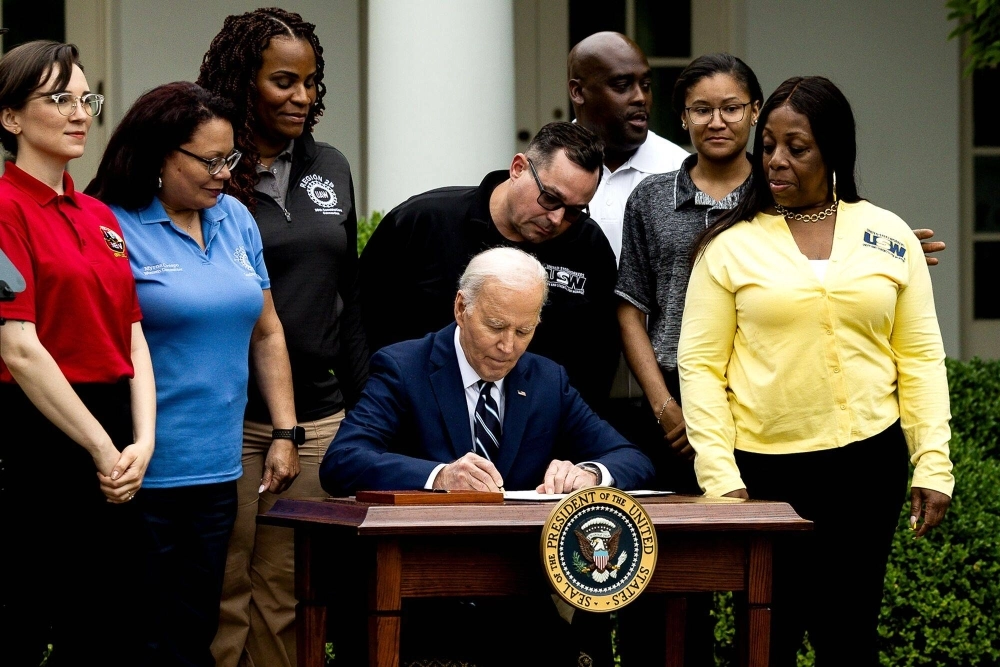The administration of U.S. President Joe Biden this week imposed major new tariffs on a slew of Chinese imports. The move is consistent with hardening sentiment against China, yet reflects a radical shift: growing skepticism about, if not outright suspicion of, free trade and the principles that guided U.S. international economic policy for decades.
U.S. officials and those in other governments who back the new approach argue that there is no such reversal. They insist that the issue is reciprocity: The competitiveness of Chinese exports stems from unfair advantages they enjoy in their home market. That is true but more fundamentally, the new U.S. policy reflects a reassessment of the weight afforded economic interchange in promoting national security. Wealth and prosperity does not necessarily promote peace and security.
The new U.S. tariffs mean Chinese electric vehicles will face a 102.5% duty this year; currently it is 27.5%. The tax on lithium-ion EV batteries will also nearly quadruple to 25%. Tariffs on solar cell imports will double to 50%, as will those on computer chips. Tariffs on certain Chinese steel and aluminum products will climb to 25% this year, more than three times the current level. The increases for EVs, steel, aluminum and solar cells will occur this year; those for chips will go into effect in 2025.
















With your current subscription plan you can comment on stories. However, before writing your first comment, please create a display name in the Profile section of your subscriber account page.